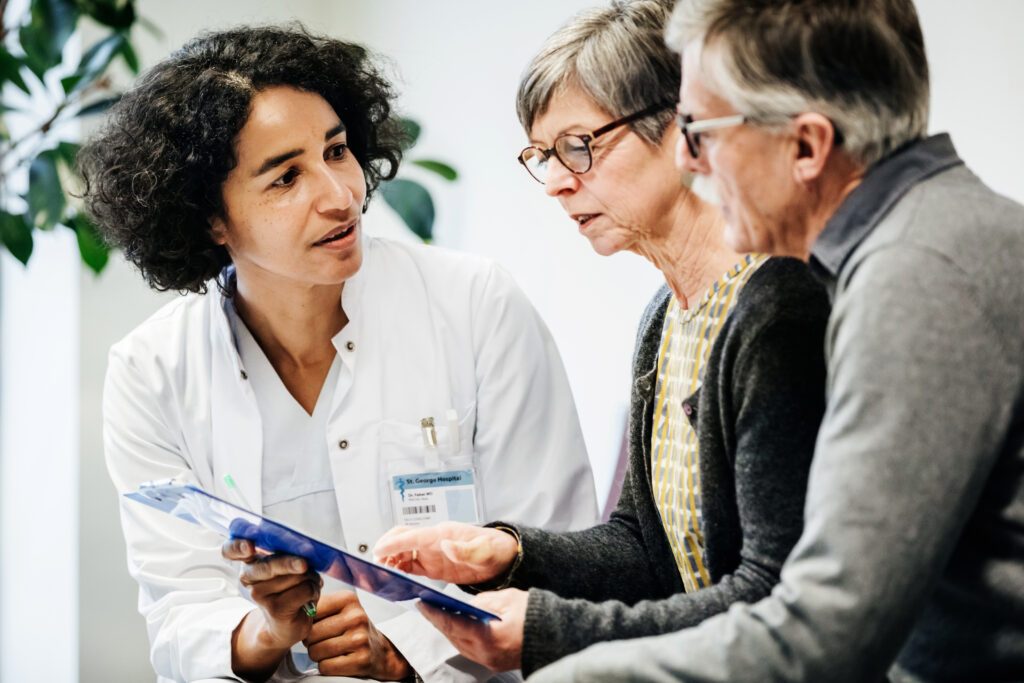Glossary of common clinical trial terms
Clinical trial research often includes terms that may not be familiar to you. For definitions of commonly used terms, visit our glossary.
A clinical trial is a research study designed to learn how our bodies respond to medicines or other treatments.
Who can take part in a clinical trial depends on the research question the trial is trying to answer (what the trial is being done for). Some trials recruit patients with a disease or other health condition that the clinical trial is studying. Other trials enroll healthy volunteersHealthy volunteerA study participant who does not have a disease or condition, including the condition being studied, which means you do not have a specific disease or health condition.
Ideas for clinical trials usually come from researchers. Researchers first test new investigational treatments in a lab. The treatments with the most promising results are moved into clinical trials to see if they are safe and work well for people.
Each clinical trial has a primary purpose – the main reason it’s being done.
Clinical trials may be paid for (sponsoredSponsorA company, group, or organization that plans or pays for a study) by different people or organizations, such as:
Clinical trials may take place in:
In many clinical trials, one group of participants will get the trial drug or investigational treatment being tested, while a second group, the control group, gets either an existing (standard) treatment or a placebo (a look-alike substance that does not contain an active drug or treatment). This is done to see how well the trial drug or investigational treatment works compared to the existing treatment or a placebo.
Side effects are any effects of a medicine, treatment, or interventionInterventionAction; Treatment; A treatment given in a study other than the main intended effect, and could be good, bad, or neutral. Investigational treatments must be tested for side effects that happen right away or after a longer time.
Adverse events (also called adverse effects) are medical problems that happen or worsen during a clinical trial. Adverse events may or may not be caused by the treatment a person took.
Before a clinical trial can start, it must be approved by an Institutional Review Board (IRB)Institutional Review Board (IRB)(In US): A team of people who review studies to protect the rights and welfare of study participants; A group formally designated and responsible for reviewing study proposals, monitoring studies involving people and protecting the rights and welfare of study participantsto make sure the risksRiskChance (likelihood) for an event, reaction or health problem to happen are as low as possible and are worth any possible benefits. An IRB is a committee of doctors, data experts, community advocates, and others who help ensure that a trial is done in an ethical way and the rights of participants are protected.
Each trial follows a carefully controlled plan (protocolProtocolClinical Study; Clinical trial; a study; a written description of the study details, plan and procedures; a detailed plan of how a new drug (vaccine) will be studied) that explains what researchers will do during the trial. During the trial, researchers report the results to the trial’s IRB, to medical journals, and to government agencies. If problems such as severeSevereStrong; serious; Very bad side effects happen during a trial, it may be stopped or paused to protect participants.
Yes. Most trials study treatments related to an illness or health condition, but do not provide care for other conditions. Your doctor can also work with the trial team to make sure that other medicines you take do not affect the trial treatment.
Yes. You can leave a clinical trial at any time. If you decide to leave a trial, talk to the trial team first. The trial team may also ask about your reasons for leaving the trial.
If you don’t qualify for a clinical trial because of your age, health conditions, or other factors, but your doctors believe you would benefit from the trial treatment, sometimes you may be able to get the treatment through “expanded access.” Expanded access may be used to provide access to an investigational treatment for people with a life-threatening or serious disease for which there is no good existing treatment.
Federal agencies may approve expanded access for a trial treatment if:
Learn more about expanded access for specific treatments at: ClinicalTrials.gov
You can learn more about clinical trials, look up results from past trials, and find current trials at: ClinicalTrials.gov
Clinical trial research often includes terms that may not be familiar to you. For definitions of commonly used terms, visit our glossary.
